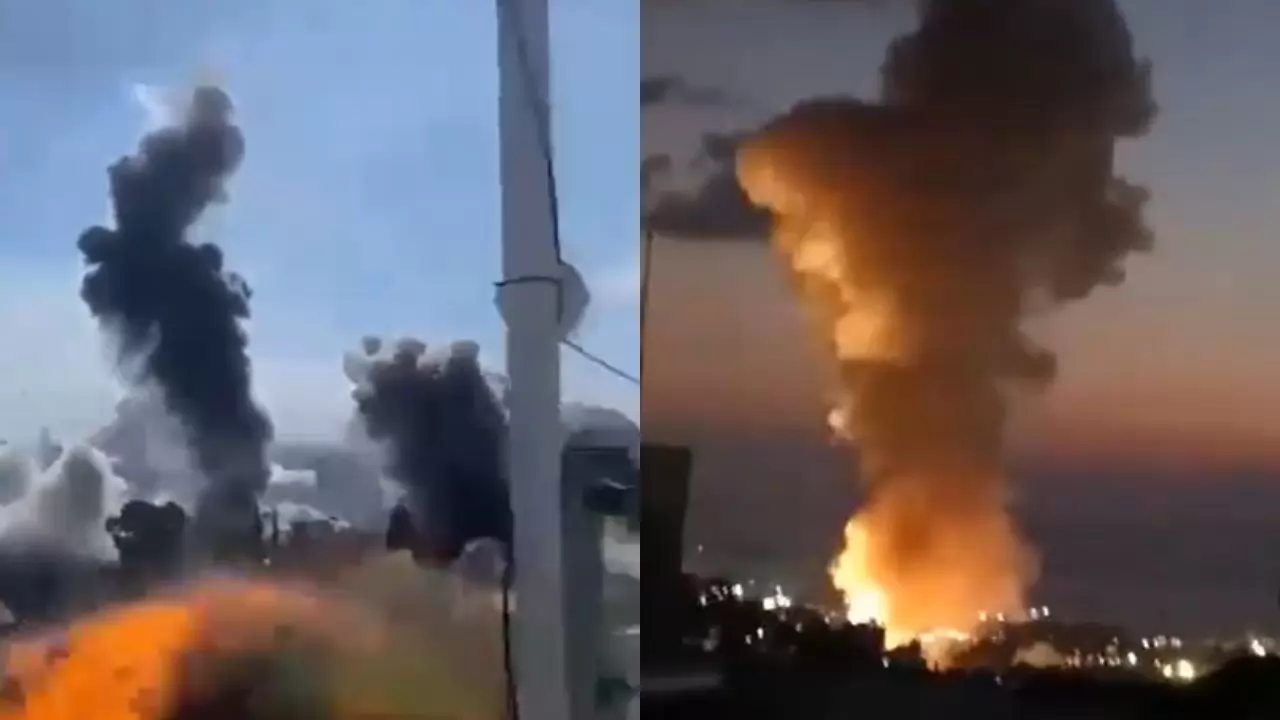
Israel airstrike claims life of senior Hezbollah commander. (X/ConflictXtweets)
New Delhi: In the wake of Israel's largest aerial assault on Hezbollah in southern Lebanon, the aftermath is stark. The recent offensive resulted in the deaths of 558 individuals, including 50 children, and left over 1,800 injured. On Wednesday, Hezbollah confirmed that one of its top commanders, Ibrahim Mohammed Kobeissi, was killed in the airstrike. The organization described him as “martyred on the road to Jerusalem,” a phrase they use to honor their fighters who die in confrontations with Israeli forces. The Israeli military also reported that at least two additional commanders from Kobeissi's faction were “eliminated” during the strikes.
Israel’s renewed military actions against Hezbollah have sparked concerns about a potential escalation of the ongoing conflict, which has already seen significant hostilities between Israel and Hamas over the past year. The situation in the region remains precarious, with the possibility of further destabilization looming large.
The United Nations agency responsible for Palestinian refugees, UNRWA, is preparing for what it describes as a triple crisis due to the escalation of Israeli strikes in Lebanon, which adds to the existing turmoil in Gaza and the West Bank. Philippe Lazzarini, the Commissioner-General of UNRWA, stated that the agency is facing severe financial challenges while dealing with active conflicts in all three areas of its operations. “With three of its areas of operations turning into active frontlines, the embattled agency is poised to come under even more pressure,” he noted.
According to officials in Lebanon, the Israeli airstrikes over the past two days have predominantly affected southern Lebanon and the Bekaa region in the northeast, where Hezbollah maintains a strong presence. The reported death toll includes a significant number of civilians, highlighting the devastating impact of the conflict on innocent lives.
In light of the escalating violence, French President Emmanuel Macron urged Iranian President Masoud Pezeshkian to leverage Iran's influence to de-escalate tensions in Lebanon. Macron emphasized the need for Iran to contribute to stabilizing the region, calling for a general reduction of hostilities.
Israeli Prime Minister Benjamin Netanyahu warned of “complicated days” ahead and clarified Israel's military strategy, stating, “We do not wait for the threat, we are ahead of it.” In a direct appeal to the Lebanese people, he urged them to evacuate areas deemed dangerous, asserting that Hezbollah has been using civilians as human shields by placing weapons in residential areas.
In the UK, Prime Minister Keir Starmer advised British nationals in Lebanon to leave immediately due to the escalating conflict. He stated, “The most important message from me this evening is for British nationals in Lebanon to leave immediately,” as the UK prepared to mobilize troops for possible evacuations.
US President Joe Biden addressed the United Nations General Assembly, cautioning against the risk of a “full-scale war” in the Middle East. He emphasized the importance of diplomatic solutions for the ongoing issues in Lebanon and the prolonged conflict in Gaza.
However, Lebanon’s foreign minister expressed dissatisfaction with Biden's comments, indicating they lacked strength and would not effectively resolve the challenges facing Lebanon. Abdallah Bou Habib conveyed his disappointment while attending the UN General Assembly, expressing a desire for more proactive US diplomacy.
Several global leaders have called on Israel to avoid escalating the situation further in Lebanon. The UN Security Council is scheduled to convene to discuss the increasing tensions and the implications for regional stability.
In the United States, demonstrations have emerged in various cities opposing American military support for Israel. Protesters gathered in Herald Square, New York City, holding banners that declared “Hands off Lebanon now” and “No US-Israeli war on Lebanon,” reflecting rising dissent over US involvement in the conflict.
As the situation continues to evolve, the international community watches closely, hoping for a resolution that can bring an end to the violence and restore stability in the region.





Copyright © 2026 Top Indian News
